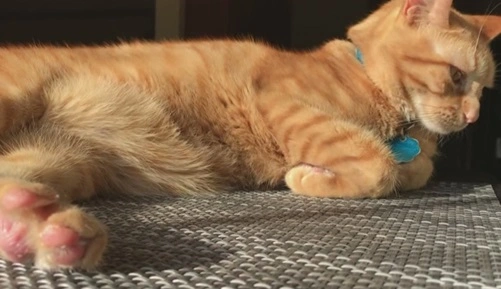No, it is not illegal to declaw a cat in Florida at the state level, but some municipalities within the state have banned the practice. While declawing remains a controversial topic, new legislation in certain areas reflects a growing trend to restrict or outlaw this procedure due to concerns about animal welfare.
Understanding Declawing and the Law
1. What Is Declawing?
- Declawing, also known as onychectomy, is the surgical removal of a cat’s claws by amputating the last bone in each toe.
- It is often performed to prevent scratching but is criticized for causing pain, behavioral issues, and long-term health problems in cats.
2. Florida’s State Law
- Florida has no statewide law banning the declawing of cats.
- Veterinarians in the state are permitted to perform the procedure, but ethical guidelines from veterinary organizations strongly discourage it unless medically necessary.
3. Local Bans in Florida
Certain cities and counties in Florida have banned cat declawing. For example:
- West Palm Beach passed an ordinance in 2021 banning the practice except for medically necessary cases.
4. National Context
Declawing bans have gained traction in the United States. States like New York and cities like Los Angeles have implemented full prohibitions on declawing except for medical reasons.
Ethical Concerns Driving Restrictions
1. Animal Welfare
- Declawing is increasingly viewed as an unnecessary and inhumane procedure, as it causes significant pain and long-term complications for cats.
- Alternatives like scratching posts, nail trimming, and claw caps are promoted as more humane solutions.
2. Behavioral Issues
Cats that have been declawed often develop behavioral problems, such as biting or avoiding the litter box, as a result of the pain and stress from the procedure.
3. Veterinary Opposition
Organizations such as the American Veterinary Medical Association (AVMA) and the Humane Society discourage declawing except in cases where it is medically necessary to address a cat’s health condition.
Consequences of Declawing Bans
1. Fines and Penalties
In areas where declawing is banned, violations can lead to fines for veterinarians or pet owners who seek out the procedure.
2. Increased Awareness
Local bans in Florida and elsewhere have increased awareness of alternatives to declawing, encouraging pet owners to consider humane options.
3. Changes in Veterinary Practices
Many veterinary clinics in Florida and nationwide have voluntarily stopped offering declawing services, even in areas where the procedure is legal.
Alternatives to Declawing
1. Behavioral Training
Teaching cats to use scratching posts can effectively manage scratching behavior.
2. Nail Caps
Soft nail caps, like those sold under the brand “Soft Paws,” can be placed over a cat’s claws to prevent damage.
3. Regular Nail Trimming
Keeping a cat’s nails trimmed reduces the likelihood of damage to furniture or injuries to owners.
4. Furniture Protection
Scratch-resistant furniture covers or providing multiple scratching posts can help redirect a cat’s scratching behavior.
Common Misconceptions
1. Declawing Is a Simple Procedure
Declawing is not equivalent to trimming nails; it is an amputation that removes the last bone of each toe, leading to long-term physical and psychological effects.
2. Declawing Makes Cats More Docile
Many declawed cats become more aggressive or develop behavioral issues as a result of the trauma.
Overall, while declawing cats is still legal in most parts of Florida, the growing trend of municipal bans reflects increasing awareness of its ethical implications. Pet owners are encouraged to explore humane alternatives to manage scratching behavior. Understanding local laws and veterinary recommendations is crucial to making informed decisions about pet care.
Related FAQs
Q1. Is declawing illegal throughout Florida?
Ans: No, declawing is not banned statewide, but some municipalities, such as West Palm Beach, have outlawed the practice except for medical reasons.
Q2. Are there penalties for declawing a cat in banned areas?
Ans: Yes, penalties can include fines or disciplinary actions against veterinarians who perform the procedure illegally.
Q3. Can a cat be declawed if it’s medically necessary?
Ans: Yes, most bans, including those in Florida’s municipalities, allow for declawing if it is deemed medically necessary by a veterinarian.
Q4. What are alternatives to declawing?
Ans: Alternatives include nail caps, scratching posts, and regular nail trimming.
Q5. Is declawing banned nationwide?
Ans: No, but New York and some cities, including Los Angeles, have passed full or partial bans on declawing.

